Developed in the 16th century, bomba is a traditional genre of music and dance in Borikén (currently known as the island of Puerto Rico).
This musical genre was created by enslaved communities of African descent as a way to express themselves, tell stories, share news, communicate revolts, and reaffirm their humanity. The instruments used in this tradition are the maracas (an influence of Taíno Indigenous ancestors), the cua (a small hollow drum played with sticks), and the barrel drums.
During this exhilarating performance by Bomba de Aquí, you will experience the communication that occurs between the dancer, who sets the beat, and the drummer, who attempts to express, through the drumbeat, the dancer’s joy, pride, empowerment, and resilience.
“This is how we honor our ancestors as we continue to express ourselves through bomba, the dance of resistance.” The performance will include a special appearance by local Taíno community leader Sayalí Robles, from South Portland. Sayali recently began to study the form with support from a Maine Arts Commission Traditional Apprenticeship.
This event is one part of a Taíno Mini-Conference funded by the Maine Humanities Council, in collaboration with local Taíno community leader, Sayalí Robles, from South Portland, ME; founder of Casa Areyto, Priscilla Colón, from Nashua, NH; and the directors of Bomba De Aquí, Brendalíz Cepeda and Saul Peñaloza, from Granby, MA.
For 500 years, it was widely—and incorrectly!—believed that the Taíno peoples indigenous to Borikén (what is now called the US colony of Puerto Rico) and other islands throughout the Caribbean had gone extinct. As described by Priscilla Colón, the principal goal of the project is to, “raise general awareness of Taíno indigenous culture—not just its existence but how it’s thrived & become part of every other culture in the world.” This lineage can be traced through food, language, music, and other cultural pathways.


